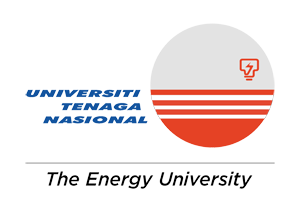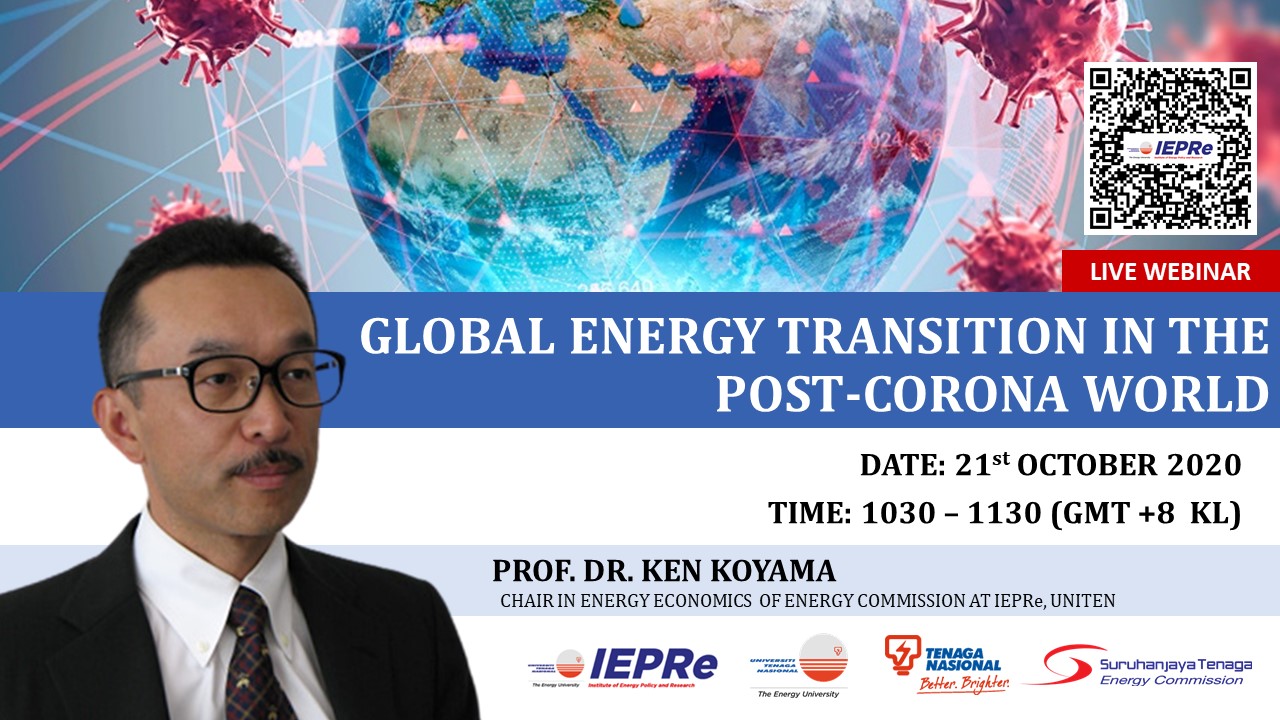Global Energy Transition in The Post-Corona World
Published on Thursday, October 15, 2020On October 21st, 2020, the Institute of Energy Policy and Research (IEPRe), Universiti Tenaga Nasional (UNITEN) has organized an hour-long live webinar session entitled ‘Global Energy Transition In The Post-Corona World’. The speaker of this webinar is Professor Dr. Ken Koyama, the Managing Director of the Institute of Energy Economics, Japan (IEEJ). He is also currently the Chair of Energy Economics of Energy Commission at UNITEN since 7 December 2015.
The live event was moderated by the Head of Energy Security Unit of the Institute of Energy Policy and Research (IEPRe), UNITEN, Dr. Hasmaizan Bt Hassan. The webinar commenced at 10.30 a.m. with a brief overview of the statutory functions of IEPRe and the introduction of the speaker, Professor Dr. Ken Koyama.
Professor Dr. Ken Koyama delivered a riveting outlook on the challenges facing the global energy transition in the post-corona world. He stated that the global energy transition that would occur post-corona is evidenced by the recent publications of the International Energy Agency 2020 Global Energy Outlook, where the issues on the coronavirus pandemic and the impact on the global energy market were highlighted. He mentioned that, as the world relies mostly on oil for its energy needs, the global oil crisis in the 1970s had driven the oil substitution policy and the enhancement of energy security policy in the Organisation for Economic Co-operation and Development (OECD) countries, which have to a large extent resulted in energy diversification. As a result, the share of nuclear energy, renewable energy, new energy, and natural gas began to increase at the expense of declining crude oil shares in the global energy mix.
The speaker led off the webinar by reiterating that the COVID-19 pandemic and the US Shale Revolution would further affect the global energy landscape. However, Asia would play a significant role in the global energy transition because of its rising energy demand due to rapid economic growth. Asia is now facing the “3E” (energy security, economic efficiency, and environmental load) challenges. The Asian energy mix is extremely dependant on coal, which has invariably created a lot of challenges in combatting climate change and curbing air pollution. There is a need for energy market reform as well as affordable energy prices in the Asian market.
The live webinar had 133 participants from various organizations within and outside Malaysia. The organizers engaged the attendees to send in questions while the webinar was in progress. Among significant questions raised by the attendees include
1. What is the role of hydrogen energy in Malaysia’s post-pandemic energy transition?
2. Should Malaysia prioritize coal over LNG despite lower LNG prices in Malaysia compared to coal?
3. What is the driver of global economic recovery in the post-pandemic era?
The speaker concluded the webinar by stating that although 2020 is still characterized by the oversupply and low price of oil, which contributes towards future instability, there is a need to pay attention to the post-corona energy sources, while strategically important technology supremacy is required to be self-sufficient, in the interest of a nation’s recovery strategy and future of energy security. The speaker highlighted that geopolitical tension might also lead to a global energy transformation in the post-corona era.
The slide can be downloaded here

